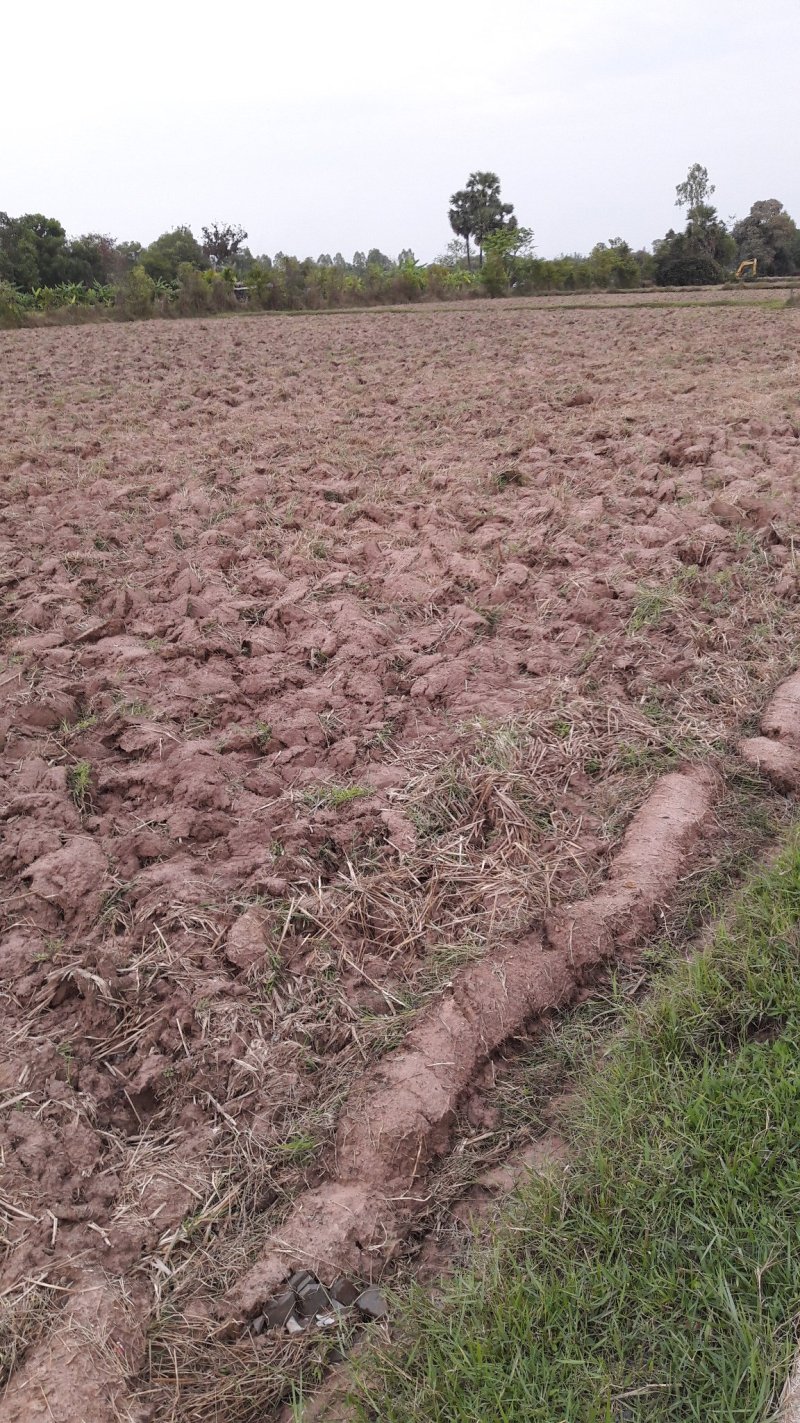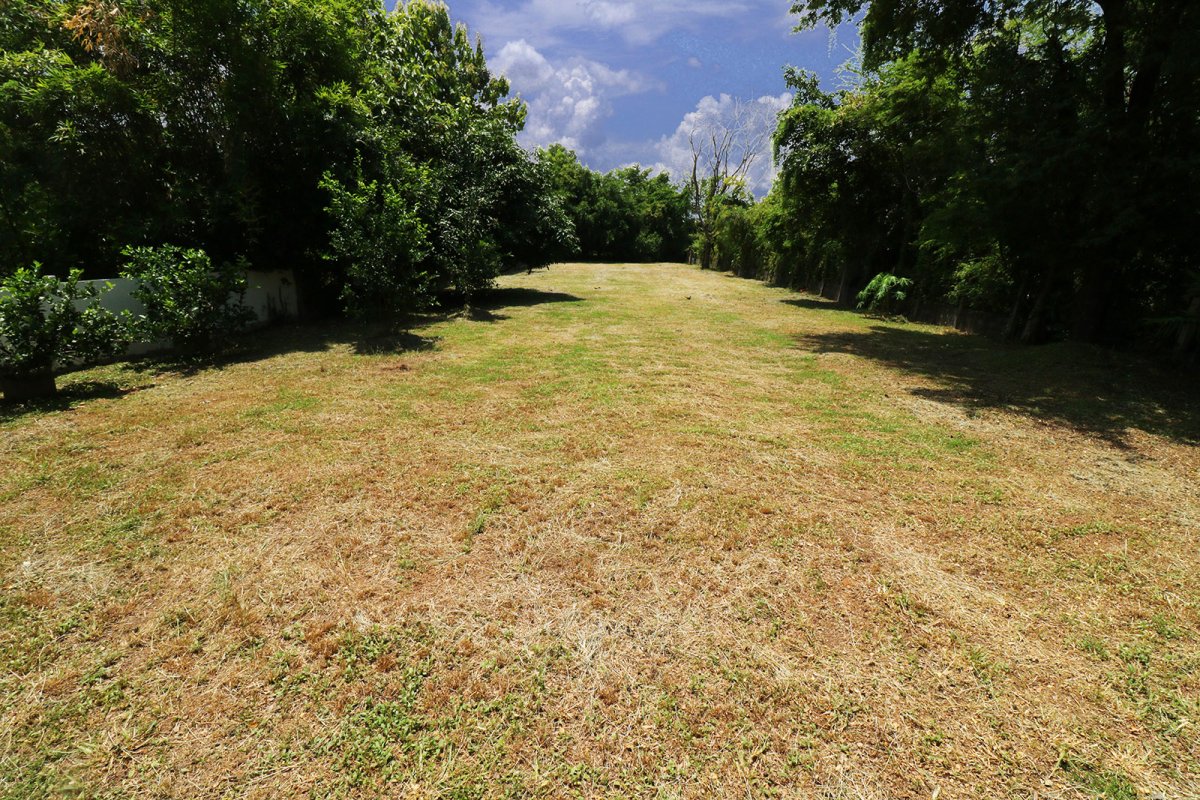You are using an out of date browser. It may not display this or other websites correctly.
You should upgrade or use an alternative browser.
You should upgrade or use an alternative browser.
New Project (15/1/22)
- Thread starter Coffee
- Start date
FERRET
WELL WORN MEMBER
Be glad you are not hanging by your gonads waiting.Land...
can be utilized for a housing development at a later date with utilities available...or remain paddy and cattle pasture.
View attachment 48094
~Caveat: regardless of what others might state a foreigner cannot own [this] property at present date. Possibly laws might or may not be revised in the future.
nomad97
Resident Geek
In my personal opinion, It is not worth the cost or the hassle to own 'farming' land in Thailand. What can you do with it? Grow rice? Ask around, growing rice is not a profitable pastime around here. If you are lucky, you may break even. And it's certainly not worth the time and trouble to grow it.
Yorky
Fullritis Member
In my personal opinion, It is not worth the cost or the hassle to own 'farming' land in Thailand. What can you do with it? Grow rice? Ask around, growing rice is not a profitable pastime around here. If you are lucky, you may break even. And it's certainly not worth the time and trouble to grow it.
We had 12 rai. Farmed it for 2 years and made under ฿20,000.00 total profit. Excluding the use of me and my truck for hauling rice and fertilizer.
Last edited:
Coffee
You chose a custom title
In my personal opinion, It is not worth the cost or the hassle to own 'farming' land in Thailand. What can you do with it? Grow rice? Ask around, growing rice is not a profitable pastime around here. If you are lucky, you may break even. And it's certainly not worth the time and trouble to grow it.
Inversely in your personal opinion is it worth it for a Thai family to own land (aka property)...particularly as a future investment to be passed down to another generation ?
Meanwhile leasing out to others to farm or utilize for livestock brings passive income with nil damage by a tenant.
Ivor the Engine
Nowhere man
Ask that question to the owners of all the vacant shop-houses and see what they say?
Coffee
You chose a custom title
Do you have particular experience with this ?Ask that question to the owners of all the vacant shop-houses and see what they say?
Location is a key ingredient.
Currently the economic downturn that Covid has put on Surin (and surely in other areas of Thailand) has put certain holdings on the property market at an 'advantage' [potentially] to certain buyers.
Do you recall the rice paddy that Robinson-Surin was constructed upon ?
Yorky
Fullritis Member
Ask that question to the owners of all the vacant shop-houses and see what they say?
I asked my friend to do that after he suggested that I build a block of accommodation units in my back field.
georgefromcanada
You chose a custom title
God isn't making more land. It is a finite resource.Inversely in your personal opinion is it worth it for a Thai family to own land (aka property)...particularly as a future investment to be passed down to another generation ?
Meanwhile leasing out to others to farm or utilize for livestock brings passive income with nil damage by a tenant.
Real property is usually a good investment over time and the longer it is held usually higher the return.
Attachments to the land ie dwellings usually depreciate from new. I think especially more so in Thailand where maintenance is a foriegn concept.
That of course does not take inflation into account.
It amazes me that people build shop houses in the middle of nowhere. There seems that rarely is there much research that goes into these investments.
Prakhonchai Nick
You chose a custom title
A Foreigner can form a company with 49% shareholding, and can buy and control the land in the Company name.Land...
can be utilized for a housing development at a later date with utilities available...or remain paddy and cattle pasture.
View attachment 48094
~Caveat: regardless of what others might state a foreigner cannot own [this] property at present date. Possibly laws might or may not be revised in the future.
Yorky
Fullritis Member
It amazes me that people build shop houses in the middle of nowhere. There seems that rarely is there much research that goes into these investments.
We have 5 "hotels" in our village, some 3.5 km from the centre of Surin. The car parks appear to show an occupancy rate of less than 20% except for the week of the Elephant Round Up.
nomad97
Resident Geek
With a Retirement Visa or an Extension based on Retirement?A Foreigner can form a company with 49% shareholding, and can buy and control the land in the Company name.
CO-CO
Rather wrinkly & occasionally cantankerous member
A Foreigner can form a company with 49% shareholding, and can buy and control the land in the Company name.
How do you control it with 49%?
I would suggest that the foreigner has neither ownership or control of the land.
I have heard several say "I own that land in my company and my wife will inherit the land when I die"
Wrong? They own 49% of a company where they can be outvoted on anything and have no control. When they die the wife inherits 49% of a company that she has no control over.
Like most things in Thailand, these arrangements can work if ALL parties want it to.
Coffee
You chose a custom title
A Foreigner can form a company with 49% shareholding, and can buy and control the land in the Company name.
1) what is the minimum capitalization of the Corporation that only purchases land without building ?
2) is that 49% possibly regarding ownership of buildings such as condo and residential home ?...which in reality is a minority versus the mandatory legal 51% in name Thai-ownership
3) potential of law changing in future for high asset real estate
CO-CO
Rather wrinkly & occasionally cantankerous member
3) potential of law changing in future for high asset real estate
IMO Farangs will NEVER be permitted to own land in Thailand.
nomad97
Resident Geek
Depends. My wife does own a 3-bedroomed house, within Muang Surin, and it does sit on 110 Talang wah of land. I consider that a good investment that can be passed to future generations. She also owns a 3/4 rai plot of land within the village. This is a building plot with hard road/electric/water access, not paddy land, and I consider that a good investment too. However, 3 or 4 years ago we turned down an offer to buy 7 rai of paddy land belonging to her mother. Neither my wife nor I considered that a good investment. As I have said before, I do not consider paddy land for growing rice a good investment, even with a tenant farmer. The best rent one could expect from a tenant farmer is maybe 1 1/2 to 2 bags of rice per rai. In a good year, the average yield per rai is around 6 bags. To offset the cost to buy 1 rai of paddy land, say 200,000 to 300,000 baht per rai, against a potential rent of 2 bags of rice (say 2,000 baht), you have to say "Is it worth it?" I do not think it is.Inversely in your personal opinion is it worth it for a Thai family to own land (aka property)...particularly as a future investment to be passed down to another generation ?
Meanwhile leasing out to others to farm or utilize for livestock brings passive income with nil damage by a tenant.
nomad97
Resident Geek
Not in my life for sure.IMO Farangs will NEVER be permitted to own land in Thailand.
Coffee
You chose a custom title
God isn't making more land. It is a finite resource.
Real property is usually a good investment over time and the longer it is held usually higher the return.
On target, George.
The land is strictly an investment.
If I wanted it in my name or estate I would purchase in the US or elsewhere.
This investment of capital removed 25 January 2022 from equity markets is strictly 'at play' for a Thai family now with three generations.
The timing is concurrent with the Covid pandemic and what has been happening with Surin real estate since 2021.
Will that downturn change direction (possibly this decade) ?
I believe it will prior to a large asteroid taking out the city. ;-)
Then again I'm an optimist.
Coffee
You chose a custom title
Depends. My wife does own a 3-bedroomed house, within Muang Surin, and it does sit on 110 Talang wah of land. I consider that a good investment that can be passed to future generations. She also owns a 3/4 rai plot of land within the village. This is a building plot with hard road/electric/water access, not paddy land, and I consider that a good investment too. However, 3 or 4 years ago we turned down an offer to buy 7 rai of paddy land belonging to her mother. Neither my wife nor I considered that a good investment. As I have said before, I do not consider paddy land for growing rice a good investment, even with a tenant farmer. The best rent one could expect from a tenant farmer is maybe 1 1/2 to 2 bags of rice per rai. In a good year, the average yield per rai is around 6 bags. To offset the cost to buy 1 rai of paddy land, say 200,000 to 300,000 baht per rai, against a potential rent of 2 bags of rice (say 2,000 baht), you have to say "Is it worth it?" I do not think it is.
Thank you.
My post #18 explains my position.
Again, "location-location-location"...
Prakhonchai Nick
You chose a custom title
The other 51% is placed with faceless nominees. I had 2 friends in Pattaya who formed companies and then bought houses the sale of which they controlled through their companies. One drawback is the necessity to produce annual accounts.How do you control it with 49%?
I would suggest that the foreigner has neither ownership or control of the land.
I have heard several say "I own that land in my company and my wife will inherit the land when I die"
Wrong? They own 49% of a company where they can be outvoted on anything and have no control. When they die the wife inherits 49% of a company that she has no control over.
Like most things in Thailand, these arrangements can work if ALL parties want it to.


